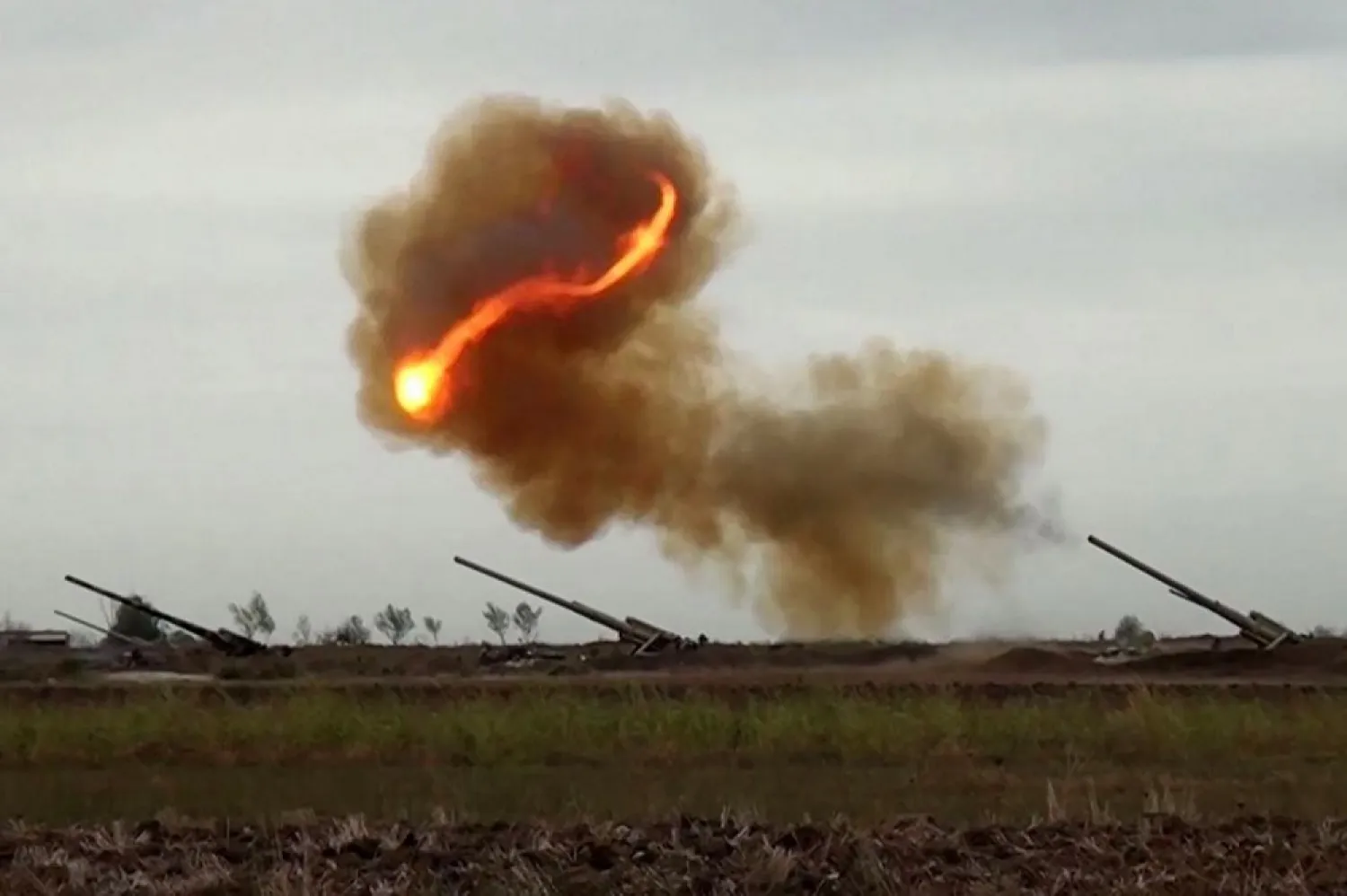Armenia said on Saturday it would use "all necessary means" to protect ethnic Armenians from attack by Azerbaijan, which said its forces were gaining ground in fighting over the mountain enclave of Nagorno-Karabakh.
Ignoring a French attempt to mediate, the opposing sides pounded each other with rockets and missiles for a seventh day in the newest flare-up of a decades-old conflict that threatens to draw in Russia and Turkey.
The death toll rose to at least 230 in the fighting over Nagorno-Karabakh, an ethnic Armenian enclave inside Azerbaijan that broke away from its control in the 1990s.
Each side said it had destroyed hundreds of the other's tanks. The Azeri side claimed gains, and President Ilham Aliyev sent congratulations to a military commander on the capture of a Karabakh village.
"Today the Azeri army raised the flag of Azerbaijan in Madagiz. Madagiz is ours," Aliyev declared on social media. It was not possible to independently verify the situation on the ground.
Armenian Defense Ministry official Artsrun Hovhannisyan said the situation was changing frequently. "In such a large war such changes are natural. We can take a position, then leave it in an hour," he told reporters.
Armenian Prime Minister Nikol Pashinyan told his countrymen in a televised address that fighting all along the front was intense.
"As of now, we already have significant human losses, both military and civilian, large quantities of military equipment are no longer usable, but the adversary still has not been able to solve any of its strategic issues," he said.
Armenia's armed forces have so far held back from entering the war alongside those of Nagorno-Karabakh. But Pashinyan portrayed the conflict as a national struggle and compared it to the country's war with Ottoman Turkey in the early 20th century.
His Foreign Ministry said Armenia, as the guarantor of Nagorno-Karabakh's security, would take "all the necessary means and steps" to prevent what it called "mass atrocities" by the forces of Azerbaijan and its ally Turkey. A ministry spokeswoman declined to comment on what steps this could entail.
The clashes are the worst since the 1990s, when some 30,000 people were killed. They have raised international concern about stability in the South Caucasus, where pipelines carry Azeri oil and gas to world markets.
Patience runs out
Apart from a four-day war in 2016 that killed about 200 people, the Karabakh region has mostly been calm for the past quarter-century, with Russia playing a balancing role as an ally of both Armenia and Azerbaijan.
Now Azerbaijan, emboldened by Turkish backing, says it has run out of patience with decades of ineffective diplomacy that have failed to lead to the return of its lost territory.
While Russia, the United States and France have called for an end to hostilities, Turkey has said Armenian "occupiers" must withdraw and rejected "superficial" demands for a ceasefire.
Regional and military analysts say the Azeris lack the firepower to overrun Karabakh completely but may settle for territorial gains that will enable them to declare a victory and gain leverage in future negotiations.
The two sides continued to trade accusations of foreign involvement, with Pashinyan saying Armenia had information that 150 high-ranking Turkish officers were helping to direct Azeri military operations.
Both Turkey and Azerbaijan have repeatedly denied the involvement of Turkish forces, as well as assertions by Armenia, Russia and France that Syrian mercenaries are fighting on the Azeri side.
Azerbaijan hit back, saying in a statement on Saturday that ethnic Armenians from Syria, Lebanon, Russia, Georgia and Greece had been deployed or were on their way to operate as "foreign terrorist fighters" on the ethnic Armenian side.
Nagorno-Karabakh said 51 more of its servicemen had been killed, raising its total losses to 198.
Azerbaijan says 19 of its civilians have been killed, but has not disclosed its military losses. Eleven civilian deaths have been reported by Nagorno-Karabakh and two in Armenia.









